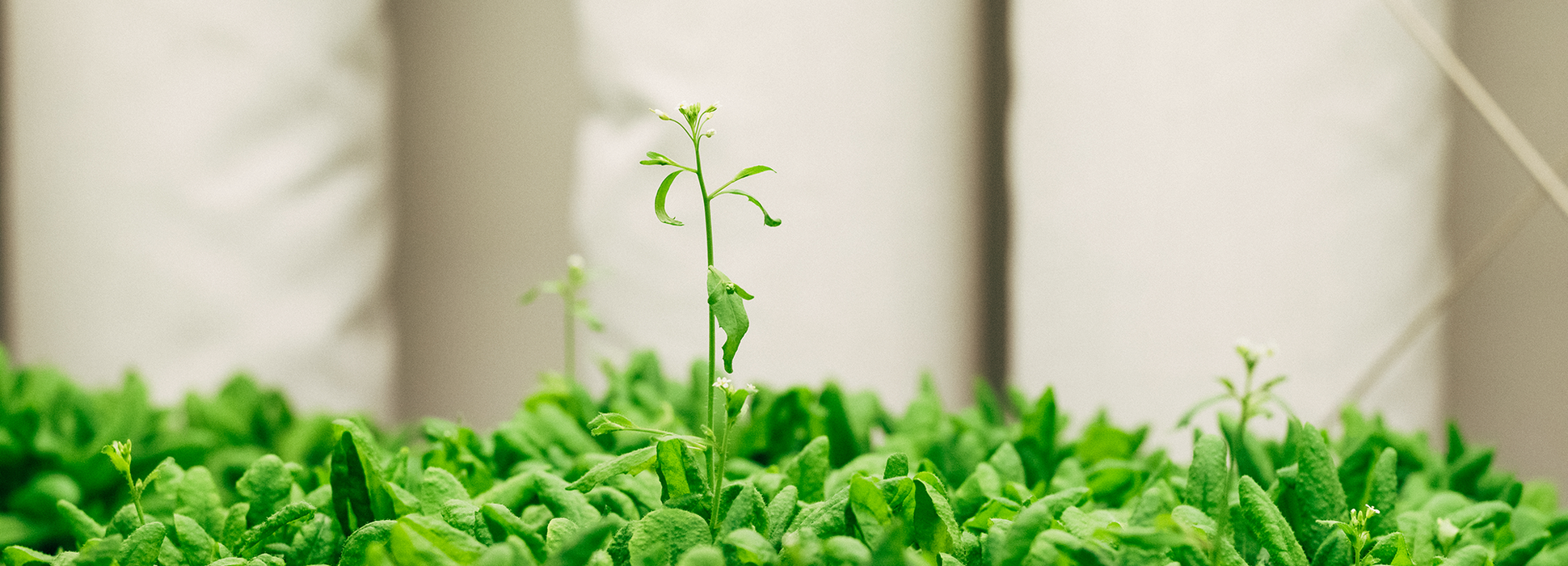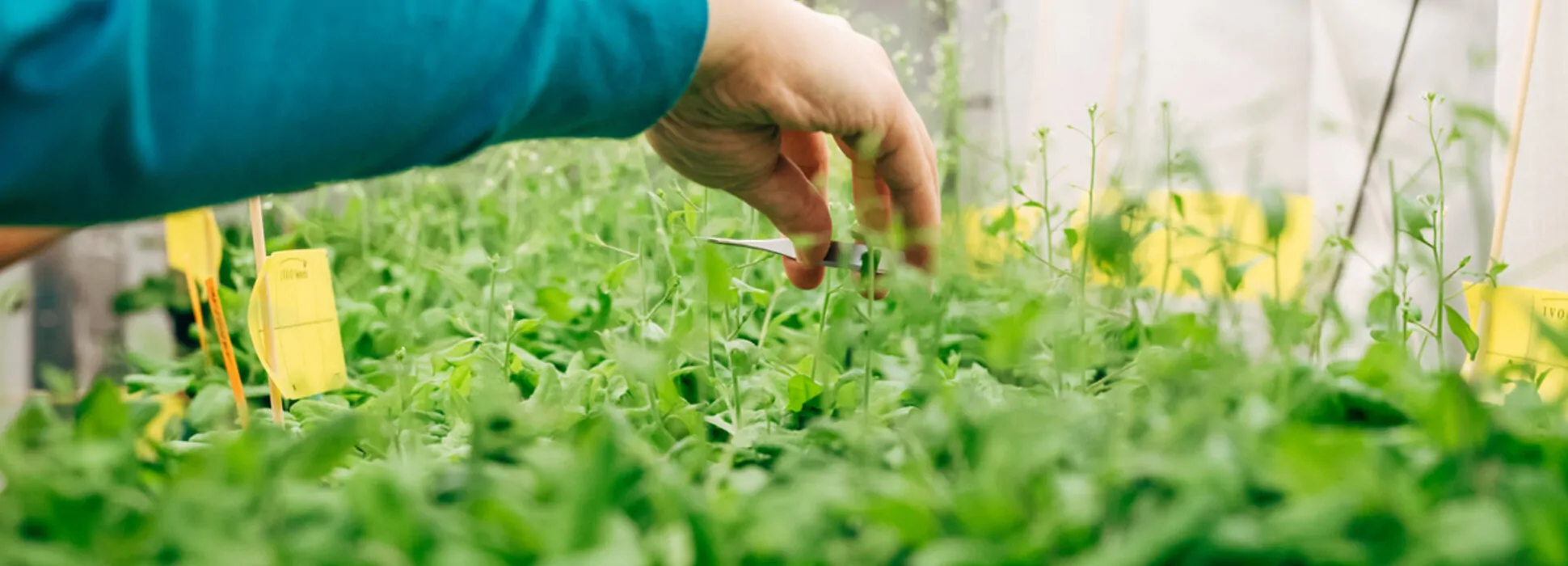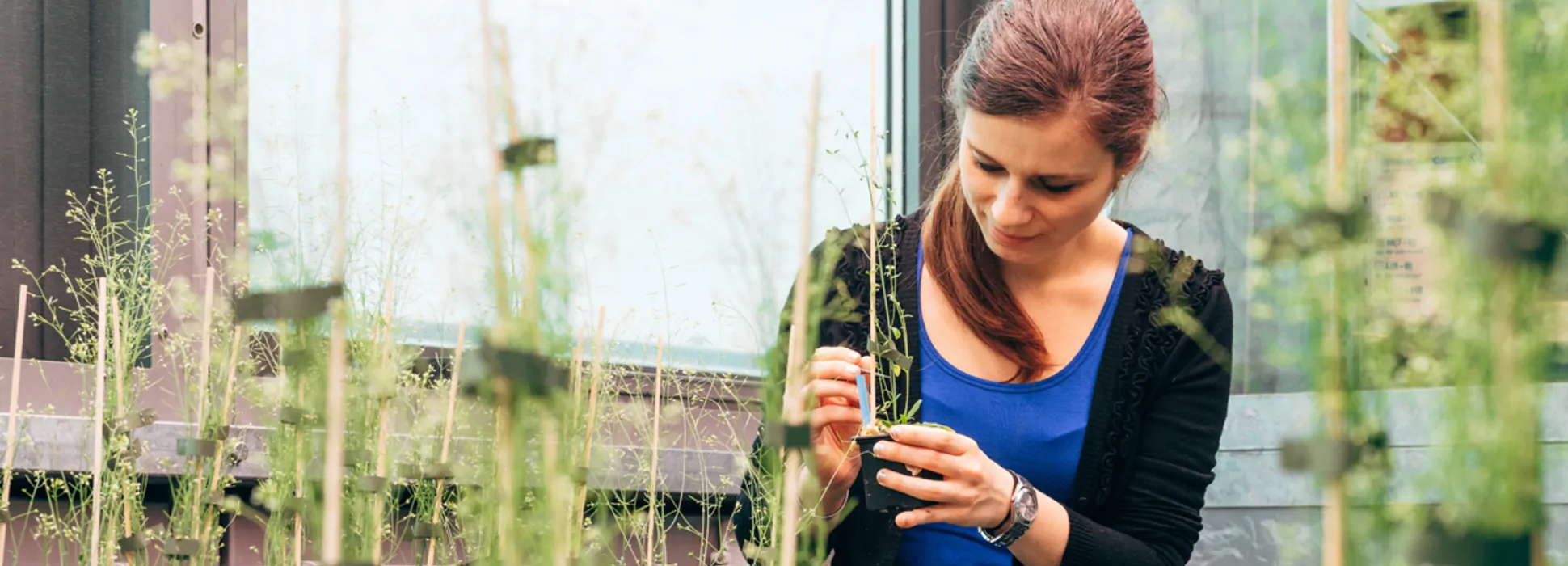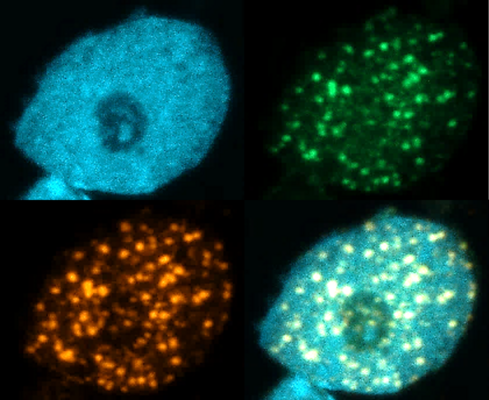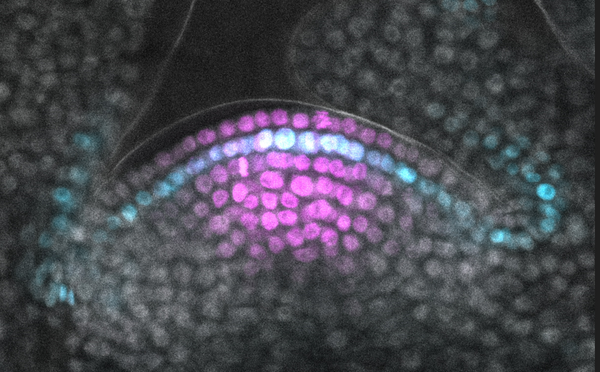
Our Mission
The GMI is a research institute devoted to plant biology. Plants created our atmosphere and sustain life on earth. Our goal is to make fundamental discoveries that help us understand how plants function — discoveries that may be essential to address global challenges like climate change. Our research ranges from molecules to ecosystems, involving a wide variety of plants — all depending on the question. We study photosynthesis in unicellular algae, and climate adaptation in coniferous trees. We believe in enabling researchers at all levels to pursue big questions in an intellectually stimulating, diverse, and collaborative environment. Key to our success are minimal hierarchy and bureaucracy, outstanding facilities, and core funding.
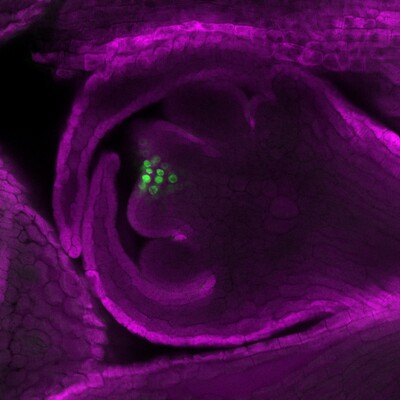
About us
The GMI is part of the Vienna BioCenter, a leading life science cluster comprising several research institutes, universities, and start-up companies and located close to the center of Vienna. The institute is owned and funded by the Austrian Academy of Sciences (ÖAW). Research topics include basic mechanisms of epigenetics, cell biology, plant-pathogen interactions, developmental biology, and population genetics. The GMI provides a lively, international working environment with around 130 people, embedded in a campus with over 1700 people from more than 70 countries. The working language is English. We strive for a friendly, inclusive environment, and provide an on-campus child care center.
Vienna BioCenter
The GMI is part of the Vienna BioCenter, one of the leading international life science research centers worldwide that has established itself as the premier location for life sciences in Central Europe.

